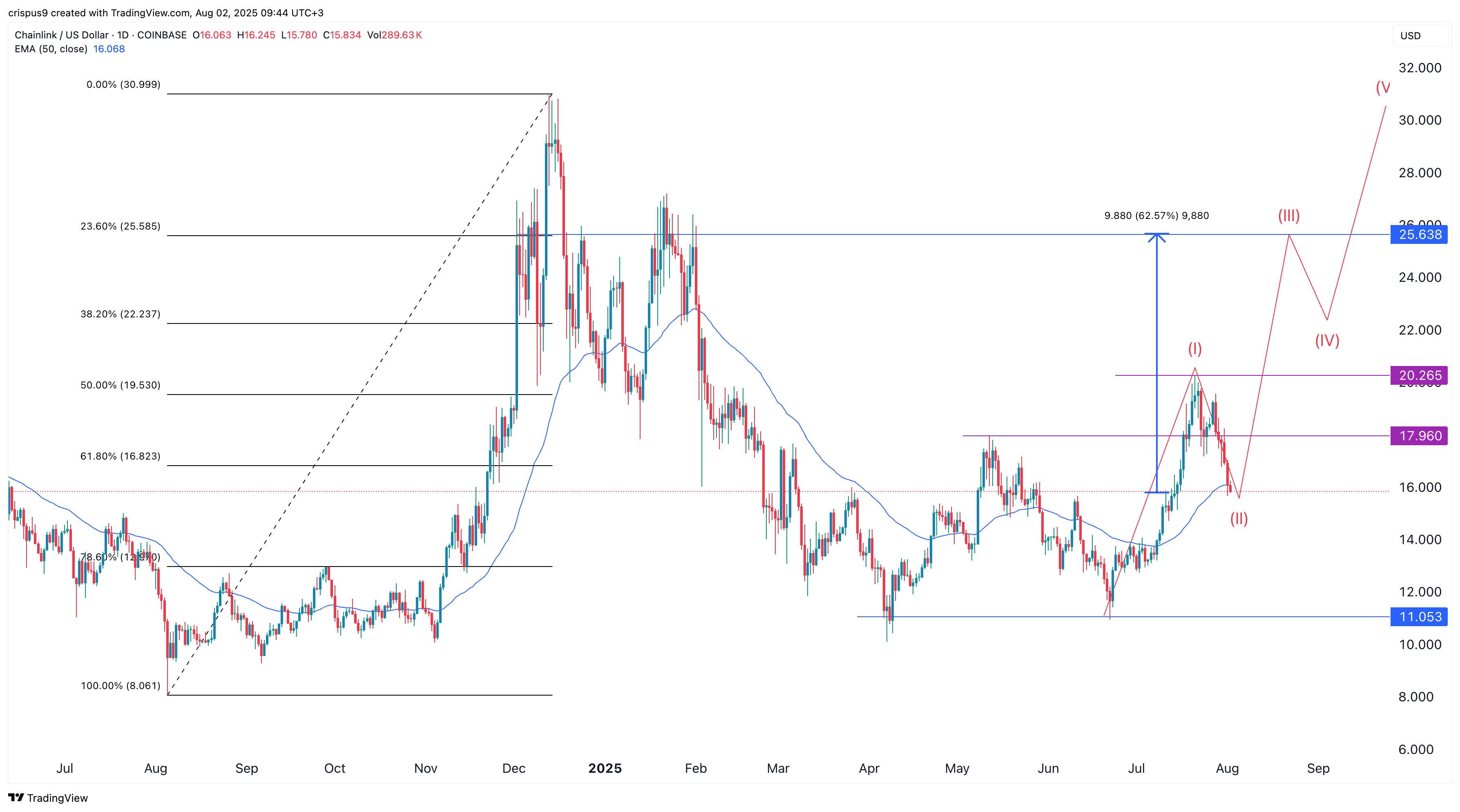Chainlink price continued its strong downward spiral as Bitcoin and most altcoins crashed.
Summary
- Chainlink price has crashed amid the ongoing crypto market plunge.
- Whales are buying LINK while the supply in exchanges is falling.
- The Elliot Wave pattern points to a strong comeback in the near term.
The Chainlink (LINK) token plummeted to a low of $15.68, about 20% below its July high.
Chainlink whale buying continues
LINK, like most altcoins, plunged this week as the recent bullish momentum in the crypto industry waned.
The sell-off continued after President Donald Trump implemented tariffs on most countries, such as South Africa, Switzerland, and India. It also escalated after the Bureau of Labor Statistics published weak jobs numbers.
The report showed that the economy created just 73,000 jobs in July, while the unemployment rate rose to 4.2%. As a result, President Donald Trump fired the head of the bureau, accusing her of manipulating data.
On the positive side, there are signs that whales have continued their buying spree. Data compiled by Nansen shows that whales hold 3.84 million tokens, a 13% monthly increase. They had over 3.38 million coins on July 5.
The amount of Chainlink on exchanges has continued falling in the past few months. There are now 276.88 million tokens, down from 283 million at the highest point in July. Falling exchange balances are a bullish catalyst as they signal that there is less selling pressure among investors.
Another potential catalyst for LINK price is that the claim period for Space and Time (SXT) tokens is nearing its end. Space and Time, a fast-growing player in the crypto infrastructure industry, provided 4% of its SXT supply to Chainlink ecosystem participants. The claiming period of the first 100 million tokens worth $8 million will end on August 8.
LINK price also reacted mildly to the introduction of a new pricing method for its decentralized exchange-traded assets
Chainlink price technical analysis

The daily chart shows that the LINK price has pulled back in the past few days, moving from a high of $20.26 on July 21 to $15 today. It moved below the key support level at $17.96, its highest point on May 12, and the 61.8% retracement level at $16.82.
LINK has also bottomed at the 50-day moving average. Most importantly, it seems to be in the second phase of the Elliot Wave pattern. As such, the third phase of this wave will likely push it to $25.60, representing a 62% increase above the current level.









